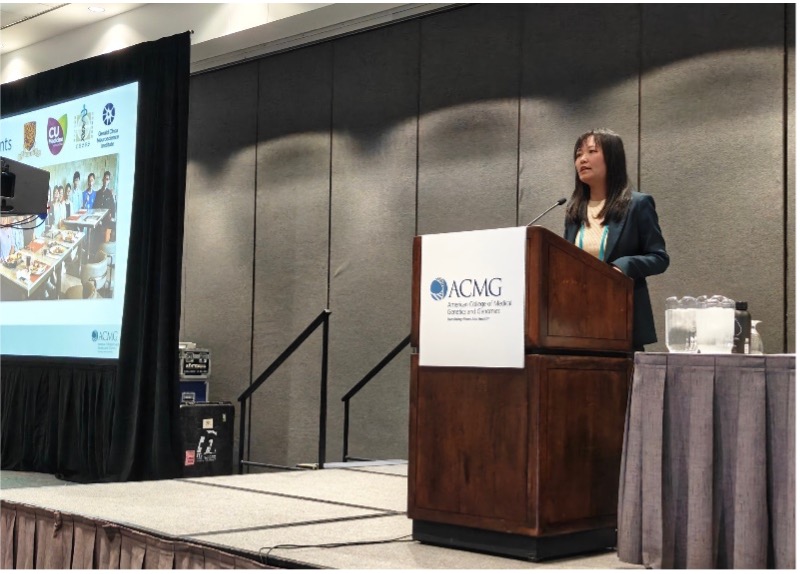News
Related
-

-

Jun 2025
CUHK Researchers Advance Understanding of Neurodevelopmental Disorder Caused by Genetic Changes in a Mediator Complex Gene
Read More
-

May 2025
CU Medicine and the Medical Center at the University of Freiburg in Germany reveal that precise timing of electrical pulses is key to overcoming limitations in current cochlear implant technologies used to restore hearing in deaf individuals
Read More









 Back
Back
Jun 2025CUHK Researchers Advance Understanding of Neurodevelopmental Disorder Caused by Genetic Changes in a Mediator Complex Gene
Researchers from CUHK have achieved recognition for their groundbreaking work on neurodevelopmental disorders (NDDs). Led by Dr. Linda Shen Gu, a GCNI core faculty member, the research project was selected as platform presentations at two of the most prestigious global conferences in human and medical genetics: the 2025 Annual Meeting of the European Society of Human Genetics (ESHG) and the American College of Medical Genetics and Genomics (ACMG). These annual meetings are premier international platforms for scientists and clinicians to present the latest discoveries in genetics, attracting thousands of participants from across the globe. ESHG 2025 welcomed over 6,800 participants from more than 90 countries, while ACMG 2025 brought together over 3,000 genetics professionals from 47 nations.
NDDs impact brain function and development, with approximately 15% stemming from single-gene defects. Despite advancements in genome sequencing, the genetic causes remain elusive for over 50% of patients. Moreover, 90% of NDD patients lack approved treatments. Uncovering novel NDD genes and elucidating their pathogenic mechanisms are critical for the development of precision gene therapies.
The Mediator complex (MED) is essential for transcription initiation by bridging transcription factors (TFs) at enhancers to RNA polymerase II at promoters. Together with collaborators, Dr. Gu previously identified an autosomal recessive NDD caused by variants in the Mediator complex subunit 27 (MED27) gene. In the current study, to investigate the disease mechanisms, Dr. Gu’s team generated in vitro stem cells carrying patient-specific MED27 mutations and in vivo mouse models with Med27 loss-of-function (LoF). These preclinical models recapitulated key patient phenotypes, including progressive cerebellar atrophy and motor deficits.
Molecular analyses revealed that mutant MED27 destabilizes the Mediator complex, impairing its DNA binding and altering chromatin interactions. Comprehensive transcriptomic profiling, including single-cell resolution spatial transcriptomics, identified dysregulation of downstream targets regulated by MED27, such as critical master regulatory TFs involved in neurogenesis and cerebellar development. This research not only lays the groundwork for future therapeutic strategies but also illuminates the indispensable role of MED genes during neurodevelopment.